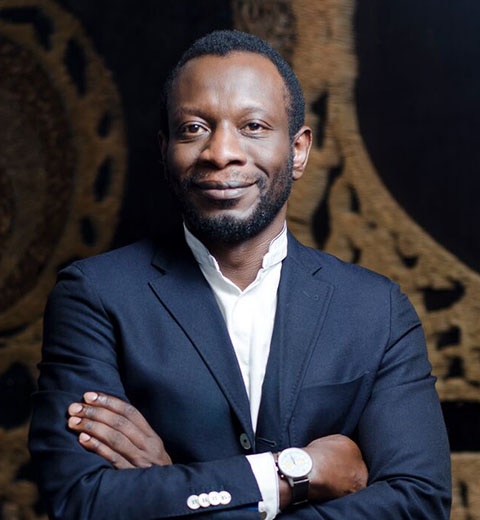Interview with Azu Nwagbogu, founder and Director of the LagosPhoto Festival and the African Artists’ Foundation
The Leica Oskar Barnack Award has reinvented itself once again in the year of its 40th anniversary: the new procedure is now based on the nominations of around 70 internationally renowned photography experts. A jury will select the finalists and the winners from among the proposals. One of the nominators is Azu Nwagbogu, founder and Director of the LagosPhoto Festival and the African Artists’ Foundation. We asked him about LOBA and his motivation and wishes for the future of photography.
In your opinion, how important is LOBA compared to other photography awards?
The first thing is the durability and consistency of LOBA; the 40th anniversary is special, and for photographers that validation over four decades means all the more. The other thing is the association with a camera maker that has played a big part in the history of photography. The roll call of previous LOBA winners is really impressive.
What is special about LOBA from your point of view?
If you look at the previous winners, especially over the last ten years or so, you’ll notice a preference for photographers with a very contemporary and personal style; photographers who tend to push the boundaries of the medium. This is very singular.
In your opinion, what international reputation has LOBA had in the past and what should its future look like?
LOBA has an immense, global reputation that has been fairly representative of the growth of photography as a medium. The future of LOBA should reflect the future of photography and its global impact, immediacy and diversity. It is great to have the award spread out, and it’s vital to invest in regions that could yield a better understanding of the majority of the world’s peoples in the future.
Can you give us any insight into how you will proceed in selecting your proposals for LOBA?
When you consider proposals by photographers, you really have to respect the fact that proposals are a reflection of the ideals of the photographer. It is important to make sure that the project is well thought through and basic research has been considered. I take these seriously, as I know first-hand the impact it can have on the lives of the communities represented and the artists/photographers themselves.
“I like the idea of remediation: healing through photography as a stimulus of memory and understanding.”
In particular, what efforts should be made to ensure that the field of application is as diverse as possible?
Diversity works for everyone and in every situation —we are all better informed by listening and learning from other demographic groups: we can’t just hope for change, we must find ways to be invested in the global, more-representative narrative. What works best is working with organisations that are active on the ground in reaching diverse groups.
What advantages do you see in a pre-selection by international experts?
There are so many images produced today and it’s clear that what is required are more experts to read and curate what we see. I am in touch with different image makers, and they are often saying the same thing: “We need help to make sense of what we produce”. Preselection is really important.
What would you advise young photographers who need support?
Work consistently and deliberately. Engage as many experts as you can while developing your ideas, and also enter competitions and festivals.
How do you assess the current situation of the photography market?
I’m glad to see young people able to make their way in the market, and to find new ways of earning a living through photography.
What wishes and hopes do you have for the photography of the future?
I like the idea of remediation: healing through photography as a stimulus of memory and understanding.
Thanks for your time!

Azu Nwagbogu
Azu Nwagbogu was born in 1975, and is the founder and Director of the African Artists’ Foundation, a non-profit organization based in Lagos, and of the annual LagosPhoto Festival. Nwagbogu is a highly experienced curator and promoter of African art. He has served as a juror for numerous international photography festivals and awards. He obtained a Master in Public Health from the University of Cambridge. He lives and works in Lagos.